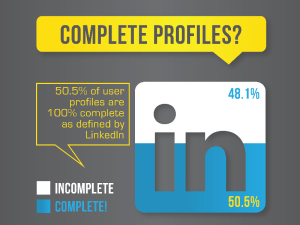Workout Objective: Understand why the recommended quiz answers result in the most effective communication style for US business culture.
Soft skills
Complete Your Linkedin Profile Today – 17 tips
Completing your Linkedin profile is probably more important today than even updating your resume. Even when you are not looking for a job, you should complete your Linkedin profile. It is your online marketing tool to show off your skill sets and it can work for you 24/7 to attract attention in the market place. ...
Anyone Can Achieve Work Life Balance
Three weeks ago, the weather was amazing in San Francisco — close to 80 degrees. As it is rare to have such good weather, and since my kids love the beach, I decided to spend the day at the beach with them.
You might be thinking that this seems like a rather abrupt choice, maybe even a rash decision. ...
Job Stress – Cause and Cost – Infographic
I came across this infographic on the cost of job stress that I wanted to share. Stress is felt by almost all of us. We almost accept it too easily as a fact of life. I think it’s important to raise the awareness of the cost of stress on your health, work performance and general well-being. ...
How to Ask for Help at Work – 5 Tips
One of the best skills you could possibly have to ensure a successful career is knowing how and when to ask for help at work. So many people are afraid of failure or being seen as incompetent that they often attempt projects or tasks just trying to improvise instead of asking for help. In a truly professional work environment, asking for help doesn’t necessarily mean you are dumb or hopeless, it just means you care about the quality of your work and how you represent your company. ...
How to Walk Without Feeling Your Feet
Many readers have emailed me or commented on the blog to ask how they can build their confidence, since confidence is essential to career success. I want to share this story I heard on Monday to see if it can help.
After each Yoga class, my favorite teacher, Ryan (female), talks to us about how Yoga can change our health and our lives. This Monday, it was a little different. Instead, she told us this story: ...
How to Use Linkedin Effectively – 5 Tips for Your Career
Being able to use Linkedin effectively for networking and building your brand is a critical skill to further your career in today’s market. Of the most widely recognized social media platforms, LinkedIn is arguably the most utilitarian. Most of the people who use Linkedin have a primarily business purpose behind their presence within the platform, and updates about what they had for dinner are noticeably absent. ...




